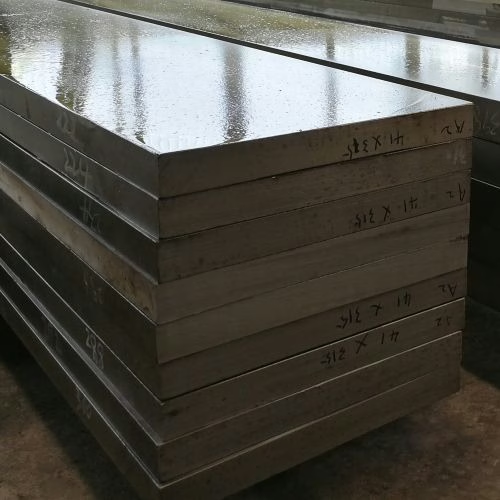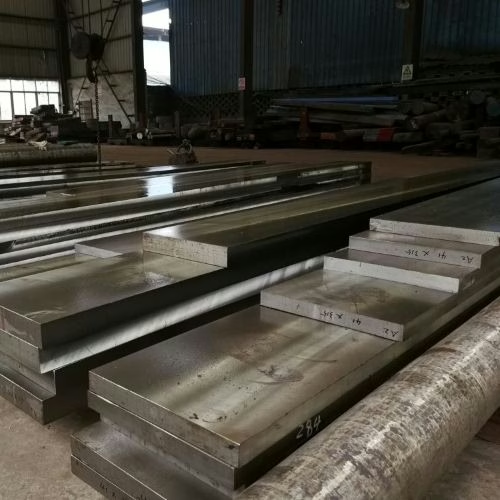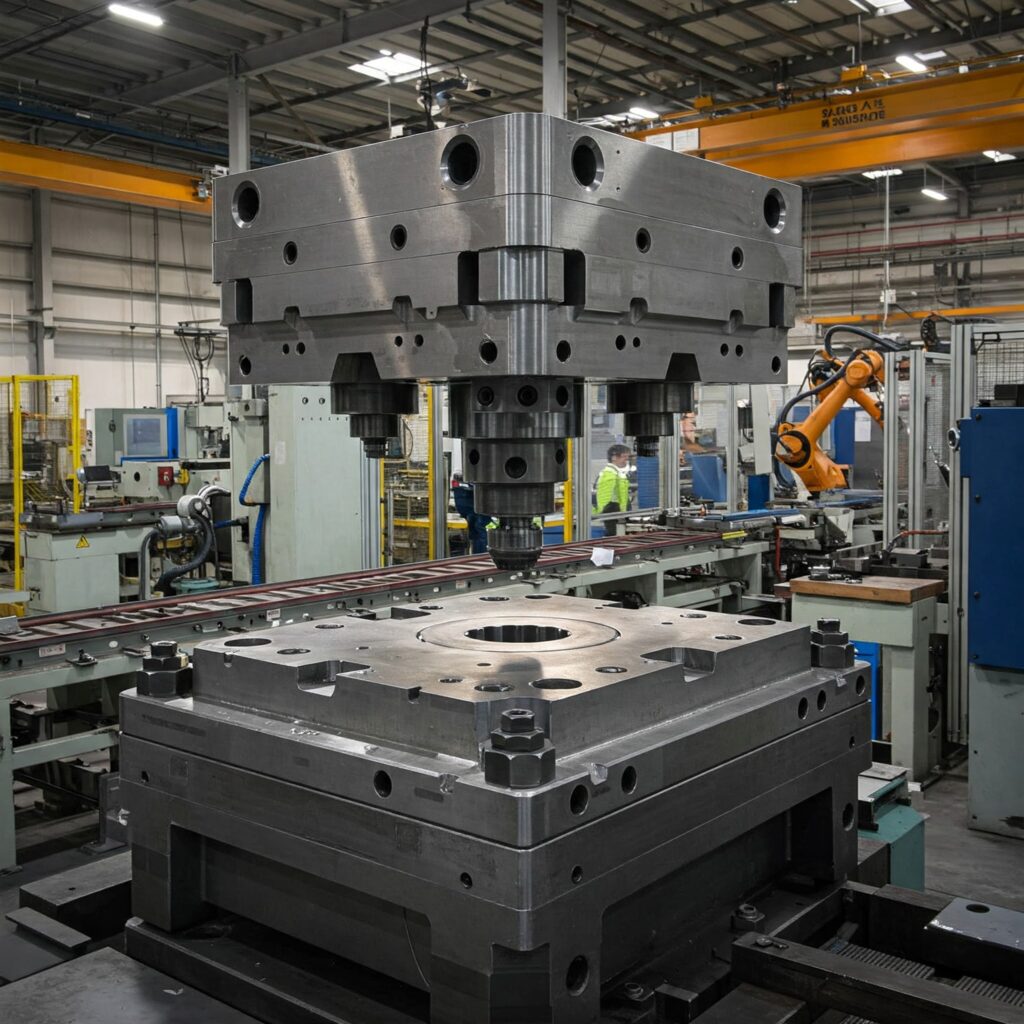A2 Tool Steel is a prominent air-hardening, medium-alloy cold-work tool steel, recognized for its balanced properties and significant attainable hardness. This steel, part of the American Iron and Steel Institute (AISI) classification system, typically contains carbon, chromium, molybdenum, and vanadium. These alloying elements contribute to its excellent wear resistance and high hardenability, allowing for air quenching, which ensures good dimensional stability and minimal distortion during the hardening process. The as-quenched hardness of A2 Tool Steel can be high, and subsequent tempering treatments, often performed at temperatures around 400-450°F (204-232°C), further enhance its microstructure by converting retained austenite and promoting secondary hardening. This careful heat treatment optimizes the A2 Tool Steel Hardness, commonly ranging from 58 to 64 HRC, making it suitable for diverse applications such as general-purpose tooling, blanking dies, forming dies, gauges, and precision measuring tools, especially where a combination of abrasion resistance, good toughness, and low distortion is critical.
Effect of Chemical Composition on the Hardness of A2 Tool Steel
A2 tool steel composition includes approximately 1.00% carbon, 5.00-5.25% chromium, 1.00-1.15% molybdenum, 0.20-0.25% vanadium, and trace amounts of manganese and silicon.
Carbon is the most critical alloying element, enabling A2 steel to harden during quenching through the formation of martensite. Increased carbon content directly correlates with higher achievable hardness and enhanced wear resistance. With its relatively high carbon content, A2 steel can attain elevated hardness levels following heat treatment.
Chromium, molybdenum, vanadium, and other strong carbides form various cementite carbides, such as vanadium-rich MC carbides and chromium-rich M7C3 carbides, whose hardness far exceeds that of the steel matrix itself. These undissolved carbide particles are the primary contributors to A2 steel’s exceptional wear resistance.
Additionally, these alloying elements impart high hardenability to A2 steel, enabling effective quenching through air cooling and thereby reducing the risk of distortion and cracking.
How Hardness is Achieved: The A2 Heat Treatment Process
The heat treatment process is crucial for developing the optimal properties of A2 tool steel, with its effectiveness significantly impacting the final hardness and overall performance of the tool. A2 is classified as an air-hardening, medium-alloy cold-work tool steel. Its heat treatment typically involves several stages: austenitizing, quenching, and tempering.
- The austenitizing step is crucial for dissolving alloy carbides and forming a homogenous austenite structure. For A2 steel, the recommended hardening (austenitizing) temperature is around 950-970°C (1740-1775°F). Austenitizing at this optimal temperature ensures maximum as-quenched hardness, typically reaching 64 HRC, due to almost complete transformation to martensite upon cooling. Deviations from this optimal temperature can negatively impact hardness: too low a temperature may leave undissolved carbides, reducing hardenability, while too high a temperature can lead to excessive dissolution of carbon and alloying elements, increasing retained austenite and consequently lowering hardness. The austenitizing temperature also affects the grain size of the austenite.
- Following austenitizing, A2 tool steel is air quenched. Air cooling is a slower quenching method that helps minimize thermal shock, internal stress, and distortion compared to oil or water quenching. However, air hardening has limitations; for A2, cross-sections exceeding 127 mm (5 inches) may not achieve full hardness when air-cooled due to the mass slowing down the quench to a point that prevents proper transformation. When air quenched from the proper hardening temperature, A2 can be expected to expand approximately 0.001 inch per inch (0.001 mm/mm).
- Tempering is the final critical step, performed immediately after quenching to relieve internal stresses, increase toughness, and transform retained austenite. Tool steels like A2 are rarely used in the as-hardened condition due to high internal stresses and low toughness. A2 typically undergoes a double tempering cycle. The first temper is often at 205°C (400°F) for 2 hours per 25mm (1 inch) of cross-section, yielding approximately 60 HRC. A second temper, usually at a slightly lower temperature of 190°C (375°F) and with a resting period at room temperature in between, further refines the grain structure, enhances wear resistance, and reduces residual austenite. While tempering generally reduces peak hardness, it significantly improves the steel’s overall performance by providing a necessary balance of hardness and toughness.
A2 Tool Steel Tempering Chart (Typical Hardness after Tempering)
| Tempering Temperature | Rockwell C Hardness |
| As quenched | 64 |
| 300 °F / 150 °C | 62 |
| 400 °F / 205 °C | 60 |
| 500 °F / 260 °C | 56 |
| 600 °F / 315 °C | 56 |
| 700 °F / 370 °C | 56 |
| 800 °F / 425 °C | 56 |
| 900 °F / 540 °C | 56 |
| 1000 °F / 540 °C | 56 |
| 1100 °F / 595 °C | 50 |


A2 Hardness in Practice: Recommended HRC for Key Applications
The optimal hardness for an A2 tool is determined by the forces it will encounter in service. Applications involving controlled, predictable forces can leverage higher hardness for wear resistance, while those facing unpredictable impacts require greater toughness.
- For Tool & Die Makers (Stamping, Forming, Punches). In tool and die applications such as blanking, stamping, and forming, A2 tool steel must withstand high compressive loads and abrasive wear during prolonged production runs. While toughness helps prevent chipping of cutting edges, wear resistance is the critical factor determining die life. In such applications, higher hardness maximizes die service life. The recommended hardness range is 60–62 HRC. This hardness range provides both excellent resistance to wear and deformation while fully leveraging the inherent superior toughness of A2 tool steel.
- For Knifemakers (Hunting, Utility, Tactical Knives). When A2 tool steel is used for cutting tools, a balance must be struck between edge retention (wear resistance) and toughness to prevent chipping or fracture during heavy-duty applications such as prying or splitting. The recommended hardness range is 59–61 HRC. This range provides sufficient edge retention while ensuring the tool body maintains adequate toughness under unpredictable stresses, thereby guaranteeing reliability.
- For Woodworkers (Chisels, Plane Irons). When used in woodworking tools, A2 tool steel must be capable of being ground to an extremely sharp edge and maintain that sharpness over time while cutting abrasive wood fibers. Since the applied forces are controllable and predictable, edge retention becomes the primary consideration. The recommended hardness range is 60–62 HRC.
Conclusion
The hardness of A2 tool steel is not fixed but precisely controllable. Through heat treatment processes, particularly during the tempering stage, operators can regulate the steel’s microstructure to achieve a hardness range of 57-62 HRC. For any questions regarding A2 tool steel, please feel free to contact us at your convenience.


